
Entomology is the scientific study of insects, a branch of zoology. In the past the term "insect" was less specific, and historically the definition of entomology would also include the study of animals in other arthropod groups, such as arachnids, myriapods, and crustaceans. This wider meaning may still be encountered in informal use.

Viverridae is a family of small to medium-sized mammals, the viverrids, comprising 14 genera, which are subdivided into 33 species. This family was named and first described by John Edward Gray in 1821. Viverrids occur all over Africa, southern Europe, and South and Southeast Asia, across the Wallace Line. Their occurrence in Sulawesi and in some of the adjoining islands shows them to be ancient inhabitants of the Old World tropics.
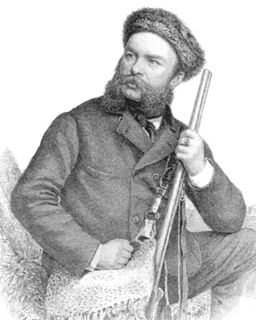
Martin Theodor von Heuglin, was a German explorer and ornithologist.

John Edward Gray, FRS was a British zoologist. He was the elder brother of zoologist George Robert Gray and son of the pharmacologist and botanist Samuel Frederick Gray (1766–1828). The standard author abbreviation J.E.Gray is used to indicate this person as the author when citing a botanical name. The same is used for a zoological name.

Wilhelm Peter Eduard Simon Rüppell was a German naturalist and explorer. Rüppell is occasionally transliterated to "Rueppell" for the English alphabet.
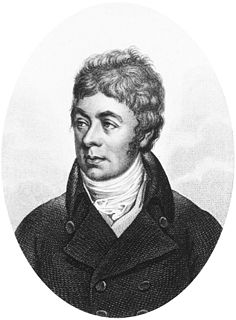
George Kearsley Shaw was an English botanist and zoologist.

Johannes Gerardus Keulemans was a Dutch bird illustrator. For most of his life he lived and worked in England, illustrating many of the best-known ornithology books of the nineteenth century.
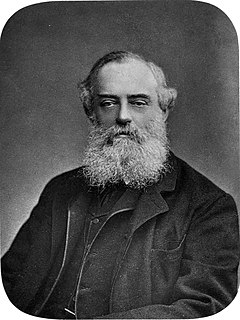
William Thomas Blanford was an English geologist and naturalist. He is best remembered as the editor of a major series on The Fauna of British India, Including Ceylon and Burma.
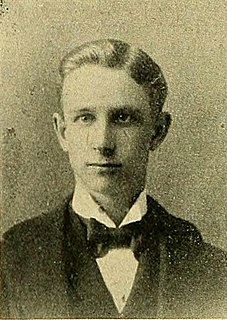
Wilfred Hudson Osgood was an American zoologist.

Joseph Wolf was a German artist who specialized in natural history illustration. He moved to the British Museum in 1848 and became the preferred illustrator for explorers and naturalists including David Livingstone, Alfred Russel Wallace and Henry Walter Bates. Wolf depicted animals accurately in lifelike postures and is considered one of the great pioneers of wildlife art. Sir Edwin Landseer thought him "...without exception, the best all-round animal artist who ever lived".

Reginald Innes Pocock F.R.S. was a British zoologist.

Ahmad ibn Ibrahim al-Ghazi was an imam and general of the Adal Sultanate who conquered the Ethiopian Empire. Imam Ahmad, embarked on a conquest which brought three-quarters of Abyssinia under the power of the Muslim Sultanate of Adal during the Ethiopian-Adal War.
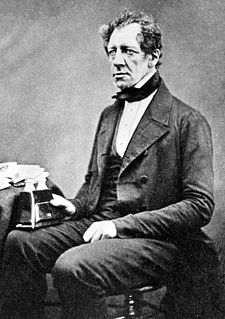
Francis Walker was an English entomologist. He was born in Southgate, London, on 31 July 1809 and died at Wanstead, England on 5 October 1874. He was one of the most prolific authors in entomology, and stirred controversy during his later life as his publications resulted in a huge number of junior synonyms.

Arthur Gardiner Butler F.L.S., F.Z.S. was an English entomologist, arachnologist and ornithologist. He worked at the British Museum on the taxonomy of birds, insects, and spiders.

Frederick Vincent Theobald FES was an English entomologist and "distinguished authority on mosquitoes". During his career, he was responsible for the economic zoology section of the Natural History Museum, London, vice-principal of the South-Eastern Agricultural College at Wye, Kent, Professor of Agricultural Zoology at London University, and advisory entomologist to the Board of Agriculture for the South-Eastern district of England. He wrote a five volume monograph and sixty scientific papers on mosquitoes. He was recognised for his work in entomology, tropical medicine, and sanitation; awards for his work include the Imperial Ottoman Order of Osmanieh, the Mary Kingsley Medal, and the Victoria Medal of Honour, as well as honorary fellowships of learned societies.

Herpestes is a genus within the mongoose family Herpestidae. Several species in the family are known as slender mongooses. It is the type genus of the family, and comprises 5-6 living species, each with several subspecies. Fossil remains of three prehistoric species were excavated in France, and described in 1853.
Sir Oliver Beauchamp Coventry St John was an administrator in British India, who took a close interest in the zoology of the region. He served as the chief commissioner of Baluchistan for ten years and was involved in the establishment of a telegraph network to India.
Arthur Francis Hemming was an English entomologist who specialised in Lepidoptera. He was mostly known, both professionally and socially, by his middle-name as Francis Hemming.

The Somalian slender mongoose is a small mammal found in Somalia and adjacent regions. It is a small to medium-sized carnivoran, averaging about 0.6 kg (1.3 lb) in weight.

William Harper Pease (1824–1871) was a 19th-century American conchologist, shell collector and malacologist. He described many species of Indo-Pacific marine mollusks from the Cuming collection.


















